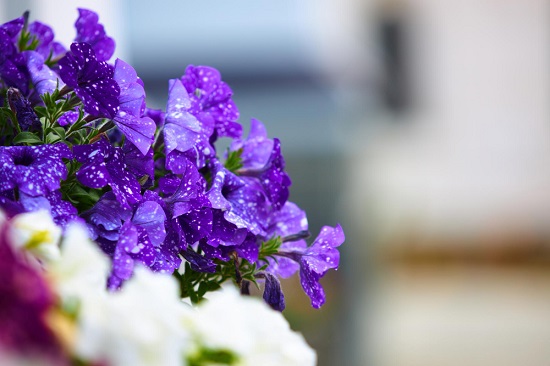If you are a petunia lover, then you know that these beautiful flowers come in a variety of colors and sizes. They can be used to add color to any garden, or they can be grown in pots on a porch or patio. Petunias are easy to care for, but there are a few things you should know in order to get the most out of them. In this blog post, we will discuss the proper way to care for petunias so that you can enjoy their beauty all season long!
What Are Petunias?
Petunias are a species of flowering plant in the genus Petunia. They are native to South America, and they have been cultivated since the 18th century. Petunias are annual plants, which means they only live for one growing season. However, they will bloom continuously from spring until fall if they are properly cared for. There are many different types of petunias, but the most popular ones are the Grandiflora petunias, which have large flowers, and the Multiflora petunias, which have smaller flowers. Keep in mind that Petunias grow in zone nine and above, so if you live in a colder climate, you will need to bring them indoors for the winter.
How to Plant Petunias
Petunias can be planted in either the spring or fall. If you live in an area with a mild climate, you can plant petunias year-round. When planting petunias, it is important to choose a location that gets full sun. Petunias also need well-drained soil in order to thrive. If your soil is heavy or clay-like, you may want to add some sand or organic matter to it before planting.
Once you have chosen a location and prepared the soil, you can plant your petunias. If you are planting petunias from seed, you will need to start them indoors about six to eight weeks before the last frost date in your area. Once they have germinated, you can transplant them outdoors. If you are planting petunias from a nursery, you can transplant them outdoors as soon as the danger of frost has passed.
When transplanting petunias, it is important to space them about 12 inches apart. This will give them enough room to grow and spread out. Once they are planted, water them well and keep the soil moist until they have established themselves.

Petunias Care: How it’s Done Right?
Petunias care are relatively easy to care for, but there are a few things you should keep in mind in order to get the most out of them. First of all, petunias need full sun in order to bloom their best. If they do not get enough sun, they will become leggy and produce fewer flowers. petunias also need to be fertilized every two weeks with a water-soluble fertilizer. Be sure to follow the directions on the fertilizer package so that you do not over or under-fertilize your petunias.
Petunias are also susceptible to a few pests and diseases. Aphids, slugs, and whiteflies can all damage petunias. If you notice any of these pests on your petunias, you will need to take action to control them. You can use insecticidal soap or neem oil to get rid of aphids and whiteflies. For slugs, you can either handpick them off of your plants or set out slug traps.
If you notice that your petunias are wilting, yellowing, or otherwise not looking their best, they may have a disease. The most common diseases that affect petunias are powdery mildew and root rot. Powdery mildew can be controlled with a fungicide. Root rot can be difficult to control, so it is important to take preventive measures. Make sure your petunias are planted in well-draining soil and do not overwater them. If you notice any of these diseases on your petunias, you should consult with a local nursery or gardening center for treatment options.
With a little bit of care, petunias can be a beautiful addition to your garden. They come in a variety of colors and sizes, so you can find the perfect petunias for your landscape. And if you take care of them properly, you can enjoy their beauty all season long!
Please let us know if you have any questions about petunias care. We would be happy to help!











